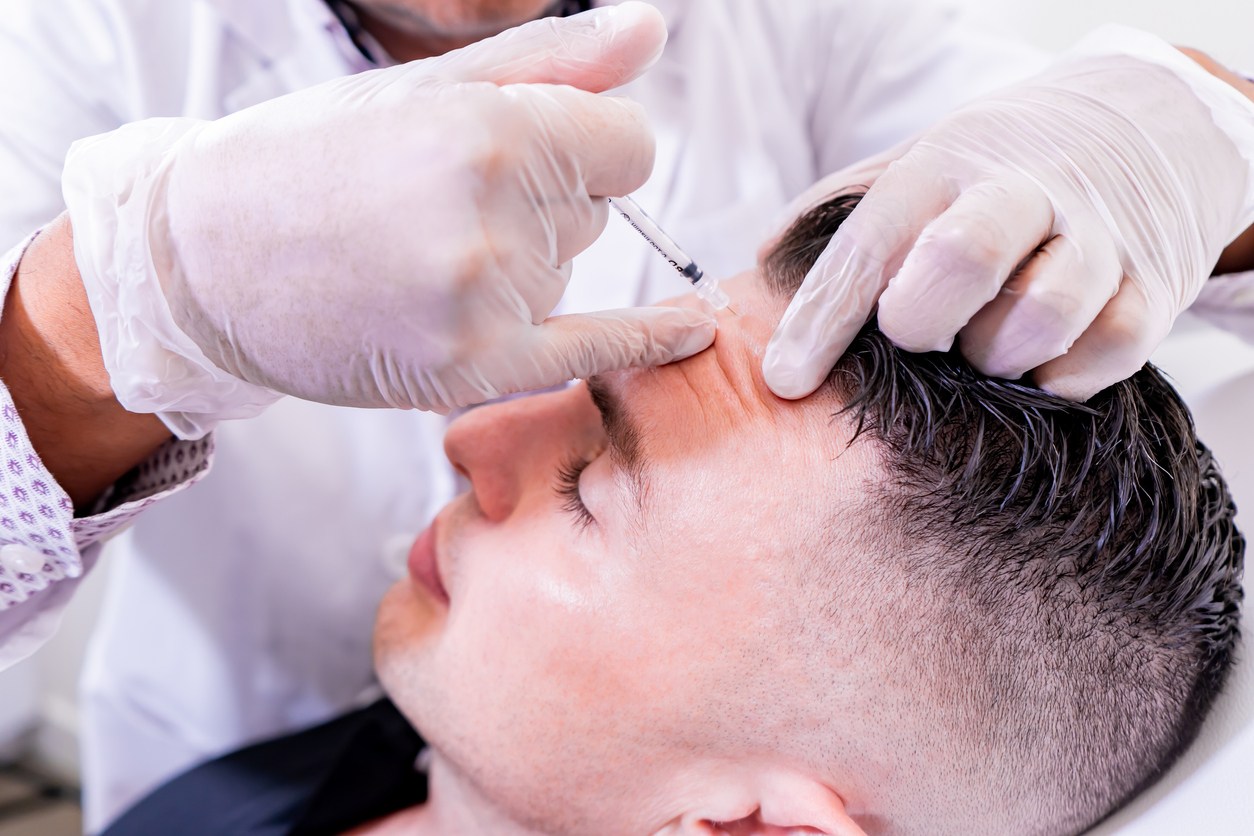How does Botox work for migraines?
Key Points
Botox is injected into muscles around your head and neck area that are associated with headache pain. It helps to block a chemical neurotransmitter known as acetylcholine that carries pain signals. When injected, Botox helps to prevent activation of the pathways in your head and neck that lead to migraine headache pain.

Botox is given as injections in 7 muscle areas around your head and neck, every 12 weeks. Each injection session takes about 15 minutes at the clinic. Most patients start with two sessions to see how well Botox works for them.
Botox is a neurotoxin but is given in small doses not absorbed into the bloodstream.
How well does Botox work for migraines?
Botox (onabotulinumtoxinA) is a preventive medication that helps to stop a migraine headache before it starts. In studies, Botox was shown to prevent on average 8 to 9 headache days a month (compared to 6 to 7 days per month for patients given a placebo, an inactive treatment).
Botox is approved to be used in adults to prevent chronic migraine headaches that occur on 15 or more days per month and that last for at least 4 hours. At least 8 of the headache days must be associated with migraine.
Because Botox is an injection you receive every 12 weeks, you won’t have to remember to take a daily pill for migraine prevention. You can combine Botox with oral medications for acute migraine treatment to help reduce pain once a headache has already begun, if approved by your doctor.
In studies, researchers found the most common side effect when Botox was used for migraine prevention was neck pain in 9% of patients (compared to 3% of patients receiving a placebo, an inactive treatment). Other side effects included headache, droopy eyelid (eyelid ptosis), and muscle stiffness or weakness.
Related questions
- Masseter Botox for Jaw Slimming: Benefits, Cost, Side Effects & Results
- How many units of Botox do I need and what will it cost?
- Where do they inject Botox for migraines?
How long does it take for Botox to work?
Some patients may see improvements in their headache frequency in the first 4 weeks, but most patients who see improvements will notice them after the second injection at 12 weeks.
In 24-week long studies, patients continued to see reductions in their number of headache days on most days over the 24-week period. Botox also lowered the total length of time of headaches on days when they occurred over the study period, when compared to placebo.
Botox is not recommended for the preventive treatment of episodic migraine.
Bottom Line
- Botox is a preventive medicine and can help to stop a migraine headache before it starts. It is injected by a healthcare professional into muscles around your head and neck every 12 weeks.
- In studies, Botox prevented about 8 to 9 headache days a month, compared to 6 to 7 days per month for patients given a placebo, an inactive treatment.
- Botox helps to block a chemical neurotransmitter known as acetylcholine that carries pain signals. When injected, Botox helps to prevent activation of the pathways that lead to migraine headache pain.
This is not all the information you need to know about Botox (onabotulinumtoxinA) for safe and effective use for migraine. Review the full Botox information here, and discuss this information and any questions you have with your doctor.
References
- Botox [onabotulinumtoxinA] Product Information 7/2020. Allergan.Madison, NJ. Accessed Oct. 14, 2020 at https://media.allergan.com/actavis/actavis/media/allergan-pdf-documents/product-prescribing/20190620-BOTOX-100-and-200-Units-v3-0USPI1145-v2-0MG1145.pdf
- Botox Chronic Migraine.com, FAQs (online). Accessed Oct 14, 2020 at https://www.botoxchronicmigraine.com/botox-faq
Read next
Dysport vs Botox: Key Differences and Effectiveness
Dysport and Botox Cosmetic are both used as cosmetic anti-aging treatments. Botox Cosmetic contains onabotulinumtoxinA (ONA), while Dysport contains abobotulinumtoxinA (ABO) - both are botulinum toxin type A formulations. Botox received FDA approval back in 1991, with Dysport following in 2009. The manufacturing differences between these botulinum toxins create distinct nontoxic protein profiles, resulting in similarities alongside notable differences.
Continue reading
Does Botox for migraines also help with wrinkles?
Botox Cosmetic is used for aesthetic purposes for wrinkles and Botox is used as a therapeutic treatment for different medical conditions, including migraine headache prevention. Botox Cosmetic and Botox come as separate products but are both prescription medicines that contain the active ingredient onabotulinumtoxinA. Continue reading
Xeomin vs Botox: How do they compare?
Xeomin and Botox both contain botulinum toxin type A, but each has distinctive characteristics that may benefit different patient populations. Xeomin's pure formulation without complexing proteins potentially offers advantages for long-term treatment and for patients concerned about developing resistance. Its generally lower cost also provides a more accessible option for many patients seeking neurotoxin treatments.
Continue readingSee also:
Related medical questions
- Daxxify vs Botox: Which should you use?
- What is Daxxify, the recent FDA-alternative to Botox?
- How much does Botox cost?
- How many units of Botox are used for migraines?
- Jeuveau vs Botox: Which is best for you?
- Botox Vs Botox Cosmetic: What is the difference?
- How long does Botox last for migraines?
- How does Botox (botulinum toxin) work?
- What is a Botox lip flip?
- What is botulinum toxin used to treat?
Drug information
- Botox Information for Consumers
- Botox prescribing info & package insert (for Health Professionals)
- Side Effects of Botox (detailed)
- Botox user reviews (482)
Related support groups
- Botox (32 questions, 161 members)
